Asian A.V. Club newsletter #46: Andrew Ahn
Director Andrew Ahn explains why remaking The Wedding Banquet is a full-circle moment for his creative career and how the original inspired the filmmaker he's become.
Full disclosure, Director Andrew Ahn has been on our radar ever since his 2016 Sundance feature debut Spa Night established the openly queer filmmaker as a talent who is able to tell honest, personal storytelling. Since then, he’s been sharpening his craft directing on a wide range of hit shows like Bridgerton, Generation and the recent Deli Boys. In 2022, embracing a lighter touch with the comedy Fire Island, Ahn showcased his knack for humor, while lifting stars Joel Kim Booster and Bowen Yang further into the spotlight.
Now Ahn takes on his biggest challenge yet, remaking Ang Lee’s classic The Wedding Banquet. Co-written with original screenwriter James Schamus, this fresh take updates the farcical wedding plot for modern audiences. Kelly Marie Tran (our recent video profile) stars as Angela, who agrees to marry her best friend Chris’ (Yang) boyfriend Min (Han Gi-Chan) in exchange for IVF funding for her and her partner Lee (Lily Gladstone). With the all-knowing, wealthy grandmother (Yuh-Jung Youn) in town for the traditional Korean wedding and Angela’s mother May (the hilarious Joan Chen) in on the sham, Ahn is totally able to juggle the hilarious situation and brings in the deep humanity that he really excels at as a storyteller.
We managed to grab a moment with Ahn recently to talk about his career, his relationship with the original film and hear about his pretty incredible coming out story.
Asian A.V. Club: Andrew, we’ve been big fans of your work for a while now, so to grab you at this moment is a real treat for us! But we always want to start off by going back to the beginning, cause we’re origin nerds like that. I was wondering if you had a particular film or tv show that inspired you so much that it was an entry point to you pursuing a life in the creative arts?
Andrew Ahn: It may feel a little cheesy to say this, but I think the moment might have been watching Ang Lee's The Wedding Banquet. I watched that film when I was eight years old. It was the first gay film I ever saw, and the fact that it was a gay AND Asian film really left an impression. It was a film told with so much humanity and it really put me on the right path, even if it was kind of subliminal.
Asian A.V. Club: How so?
Andrew Ahn: I think it made me feel like I could be who I am and inspired my filmmaking. There's something about that film that is a big part of my story, and to get to reimagine it for today feels very meaningful, albeit very scary.
Asian A.V. Club: What was it like in the early days when you decided to pursue filmmaking?
Andrew Ahn: I went to college thinking I was going to be a doctor, and I was a bio major, then I wasn't very good at it and tried to figure out something else. I ended up double majoring in Biology and English, but as part of that exploration, took some film classes. At first, filmmaking was a very personal endeavor—just me and a camera. But then I started involving more people, my friends, acting, co-directing with a friend. There was something about that collaboration that was exciting. I also wasn’t good at it, those films are terrible (laughs) and part of me wondered, how do you do this?
To me, filmmaking has always been endlessly inspiring because it’s both a craft, but also magical. You can be extremely intentional and still end up with something not good, and you wonder how you could have made it better. There’s something about always being able to do more, to do better, that there’s always more inspiration. I knew this was a lifelong career, so I went to film school, started screening at film festivals and 14 years later, here I am.
Asian A.V. Club: I love the fact that one of your short films, Dol (First Birthday), was also a segue way for you to come out to your parents. When you approach a film with a specific intention, what is that like?
Andrew Ahn: It's so funny that you mention that. I’ve always tried to find a personal connection to my work where it’s been intensely inspired by my life. It gives your work meaning, for existing. With that film, I tried for so long to come out to my parents but could never say the words. So I thought, why not articulate it the other way I know how—through filmmaking? I showed them the film, and funnily, they didn’t understand what I was trying to say. They just said, “Wow, you made a movie. And it has gay people in it.”
By then, they’d seen The Wedding Banquet and Brokeback Mountain, so they thought I was a straight filmmaker making a movie about gay people. They didn’t understand my intention and I got overwhelmed and I started crying. (laughs) They were like, “Oh no, what’s wrong?” And I had to say, “I am gay. That’s why I made this movie.” Finally, they understood.
Asian A.V. Club: Oh my gosh, this is the best coming out story!
Andrew Ahn: I’m very fortunate. They’ve been incredibly supportive. I mean, it’s taken time because that initial conversation was difficult, but I’m thankful my film work inspired me to make those steps.
Asian A.V. Club: You started your feature film career with Spa Night which premiered at Sundance Film Festival. Can you talk about the experience and importance of workshopping a film in the early stages through the help of labs like the ones Sundance and Film Independent offered for that film.
Andrew Ahn: I came of age as a filmmaker through the film festival circuit. I met collaborators and programmers through my short films screening at festivals. Through that, I got to know the nonprofit organisations running these festivals, their programming and artist support services. And so I found out about the Sundance Screenwriters Lab, Film Independent Screenwriters Lab, and directing labs. It felt like rungs on a ladder. Like, I might not know how to make a film now, but I can apply, and hopefully they’ll help me get to the next step.
What I love about independent film and those organisations is how they support personal artistic vision. I didn’t have to worry about the industry or business. And that’s something I’m learning now, It’s such a complicated balance being a filmmaker, at this stage of my career having to understand the balancing act between art and commerce. It was really helpful at the beginning to just focus on the art, to have that be the priority, because that's something that I have to now really protect as much as possible.
And it feels blissful. I'm actually very nostalgic for it. I'm so glad that I got to make Spa Night. In many ways, it's the kind of purest version of Andrew at that age. Now I tell filmmakers who are trying to make their first features, “Make it as you as possible.” That's the best way for the community to get to meet you as a filmmaker and as a person. Make your mark and then build your career from there.
Asian A.V. Club: We just did a profile on Abdullah Saeed, who created the excellent Deli Boys, and it was so good to see you helm one of their episodes. When you enter a show like Bridgerton or MacGyver as a hired director, what is that like for you to work in a space like that? What have you learned from these experiences?
Andrew Ahn: Yeah, television is very different from film, you have less authorship, but it's incredibly fun. It lets you try things you might not normally do, grow as a filmmaker, work with different actors. I remember my first TV show, This Close, shooting my first scene on a process trailer [a vehicle used as a moving camera platform] was really interesting. On that show, I also got to work with actors using ASL and that taught me so much about filmmaking and also about the Deaf and Hard of Hearing community. There's something cool about connecting with different communities.
Then there's the fun of what I call "director drag", where one puts on a different director's persona. On Generation, Justice Smith and Chase Sui Wonders references director Eliza Hittman [Never Rarely Sometimes Always, Beach Rats] and I thought, I can do my best Eliza Hittman drag. I went to film school with her. (laughs)
With TV, it's an opportunity to expand, grow, then take those lessons and apply them to your own filmmaking in a more personal way.
Asian A.V. Club: Fire Island was a real turning point in your career, because it allowed for you to engage with a more mainstream audience. What was that experience like, especially when it also gave you the chance to work with multi-faceted Queer Asian talent like Bowen Yang, Joel Kim Booster and Conrad Ricamora.
Andrew Ahn: Yeah, I always knew it would be an accessible film, meant for as wide an audience as possible. But I had to stay focused on my job, telling this story with as much joy and passion as possible. If I could do that, I knew it would reach people. I was careful not to skip a step.
Part of that process was surrounding myself with exciting, inspiring people who felt like the movie to me. Working with queer Asian talent like Joel, Bowen, Conrad, and Margaret was thrilling—just thinking about it puts a smile on my face.
And through that film, I think we were able to showcase just the depth of our community. The different perspectives and the talent that exists within it, while having so much fun with each other. We knew that the fun would be infectious and that other people would feel that joy too.
Asian A.V. Club: Was making a broader film more challenging for you?
Andrew Ahn: I knew that it was different from the previous films that I had made. But in many ways, I just had to really give it the same respect that I did those previous films, and it would organically do its job. I think if I was skipping that step and just thinking, I have to make this commercial, it would have fallen apart on me. I would do so much work, kind of not knowing why I was doing it.
And that's something that I have to constantly remind myself, whether it's TV projects or films, I have to know why this feels meaningful to me, why this feels exciting and compelling. If I can trust in those things, it'll lead me to the best possible outcome.
Asian A.V. Club: You mentioned that the original Wedding Banquet inspired you at a young age, so to then say you’d like to remake it for a whole new audience is kind of a bold choice. Where do you begin when approaching your version?
Andrew Ahn: I had to make the story personal to me. I thought about the themes of the original film, about family and about queer identity and culture, which still feel so relevant and important to me today. But the world has changed around me and so I wanted to make something personal that talked about these questions that I'm asking myself. When it comes to marriage and about having kids those two questions have really evolved since 1993 and I've had so many conversations with my boyfriend about them. I just felt that it was personal enough where I knew how I could talk about it with insight and authenticity. Yet I could still respect, be inspired, by the original film and make this movie for today.
Asian A.V. Club: Funnily enough, our last chat was with the creative couple of A Nice Indian Boy, which is about a gay Indian wedding. In a matter of weeks, we have two Queer Asian films out about how loaded an event, like a wedding, means to queer folk.
Andrew Ahn: Yeah. I mean, I remember seeing my brother get married 10 years ago, and how the Korean ritual of the Pyebaek, with the jujubes and the chestnuts and the piggyback ride, brought him closer to my parents. It brought him closer to his wife. It brought him closer to his Korean identity. And as a gay person witnessing a very heteronormative ritual, I wondered if I could ever have something like that.
And that's why in the film, I tried to make room for queerness. With questions like, what did the jujubes and the chestnuts represent? Which one is the son and which one is the daughter? And the joke that they'll have 50 nonbinary children. My parents were on set that day of the Korean wedding shoot and my dad's first guess was wrong, he thought it was the other way around. (laughs)
I think so much of what this film is for us to witness queer love. And I think that that's kind of what a queer wedding could be, right? It's a witness of people's love.
Asian A.V. Club: What do you hope this next generation will take away from your version of The Wedding Banquet?
Andrew Ahn: I really want people to watch this film in the way that I watched the original and see how much these characters love each other. Yes, we're gonna fight, but that's okay. We're gonna disagree, and that's okay. We're gonna be on different wavelengths, we just need to be patient with each other. We just need to listen to each other, we need to be generous with each other, and it'll allow for us to grow. So whether it's weddings or a quiet moment at home, I think being able to witness each other's care and love is incredibly important.
Asian A.V. Club: I know you’ve talked about the struggle of balancing art and commerce as a filmmaker, but talking to you today, I think you don’t have to worry because you’ll always have that through line of heart in your work. No matter what format or genre of film you do. It’s so cool what you’ve done this film and I can’t wait to talk to you about all the other projects you’ll be working on in the future.
Andrew Ahn: That's very kind of you. I'm excited to chat with you about every film I make in the future!
Asian A.V. Club: (laughs) Yes, please!







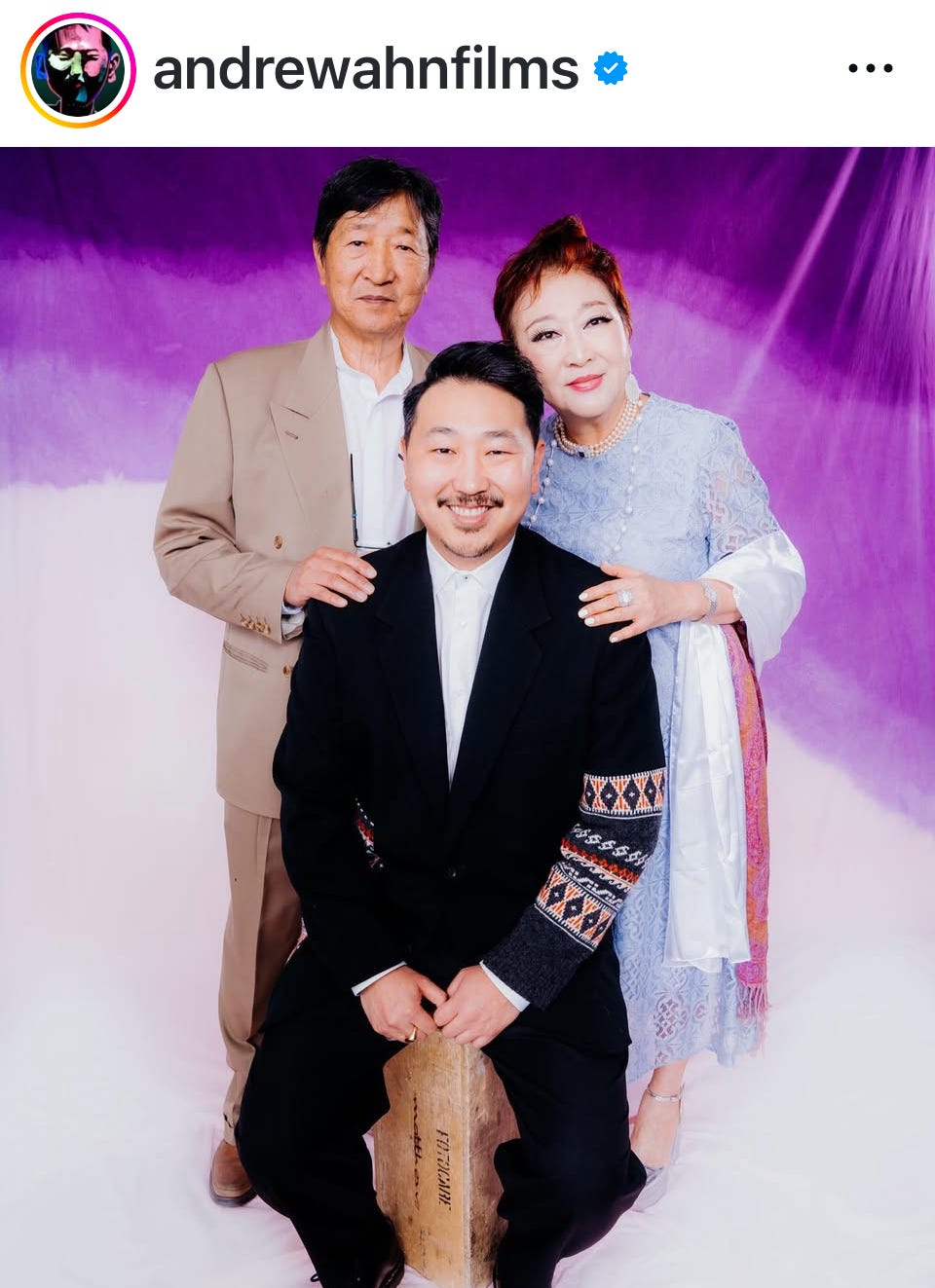
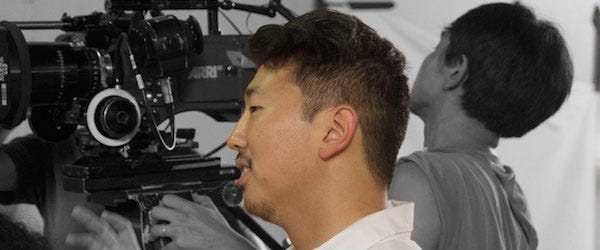
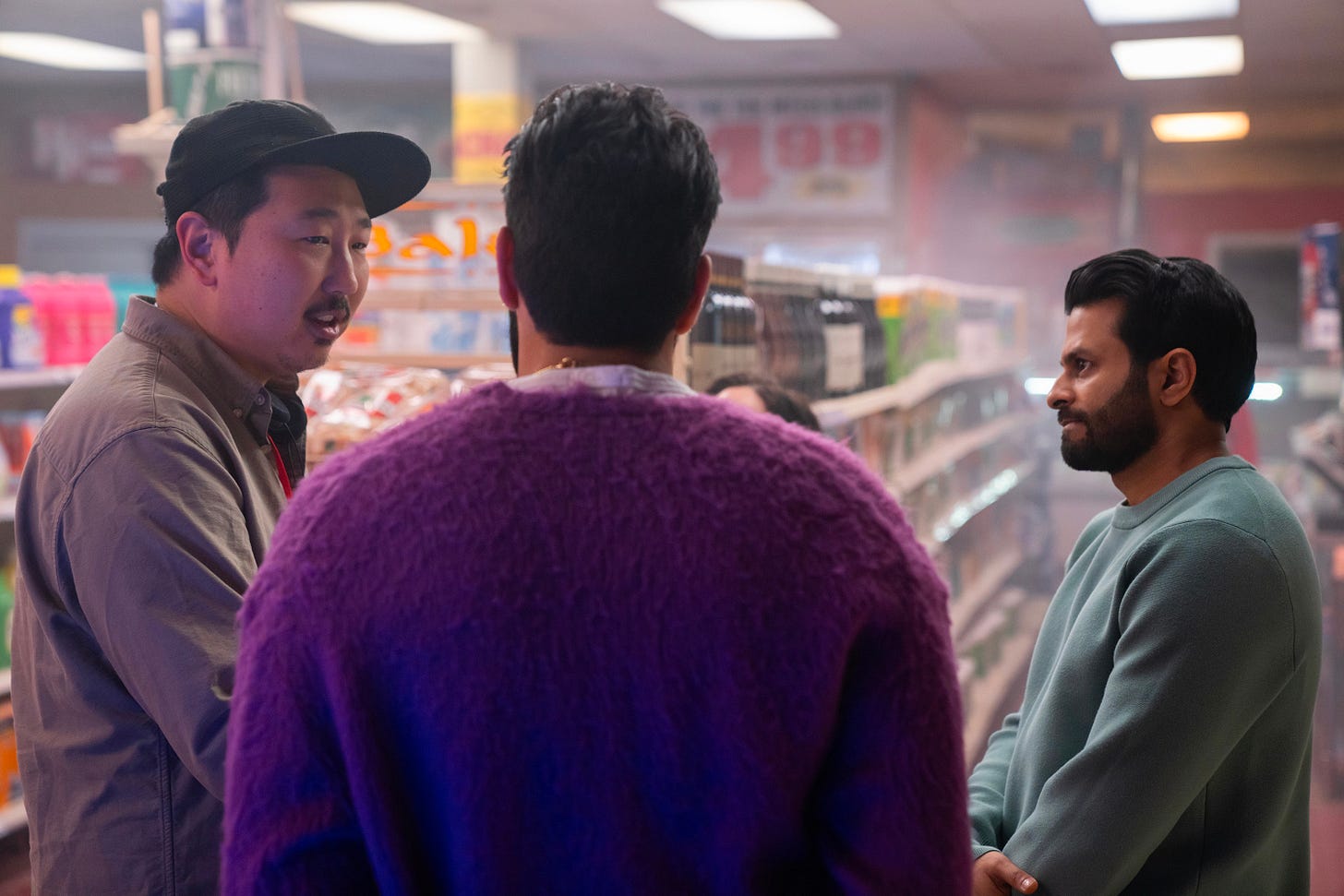

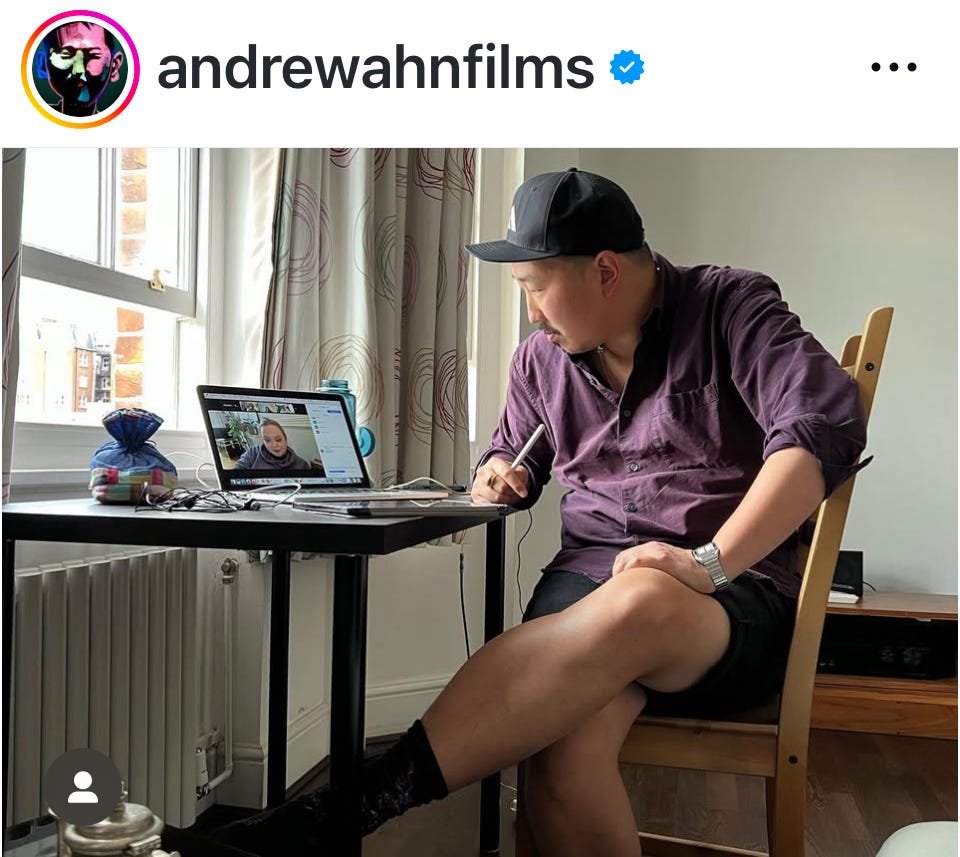
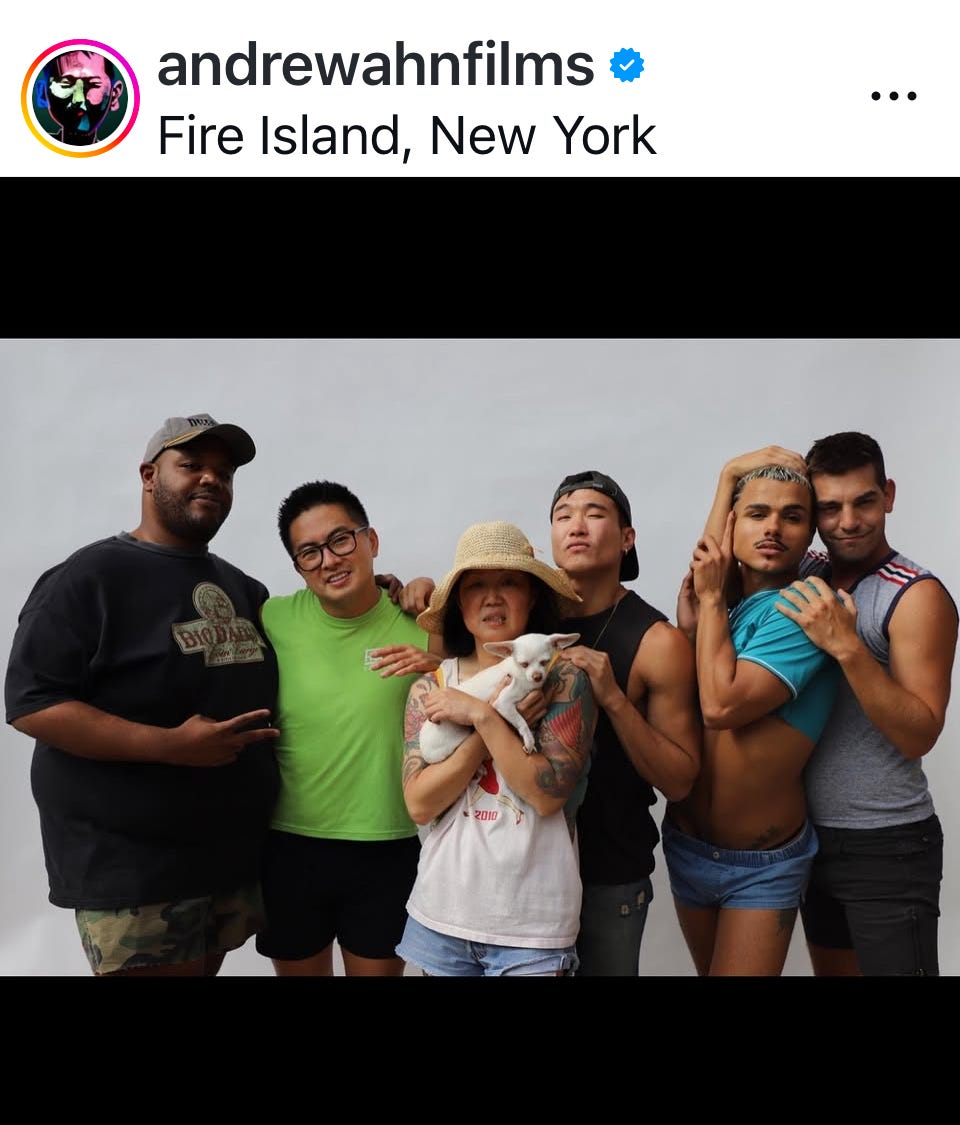
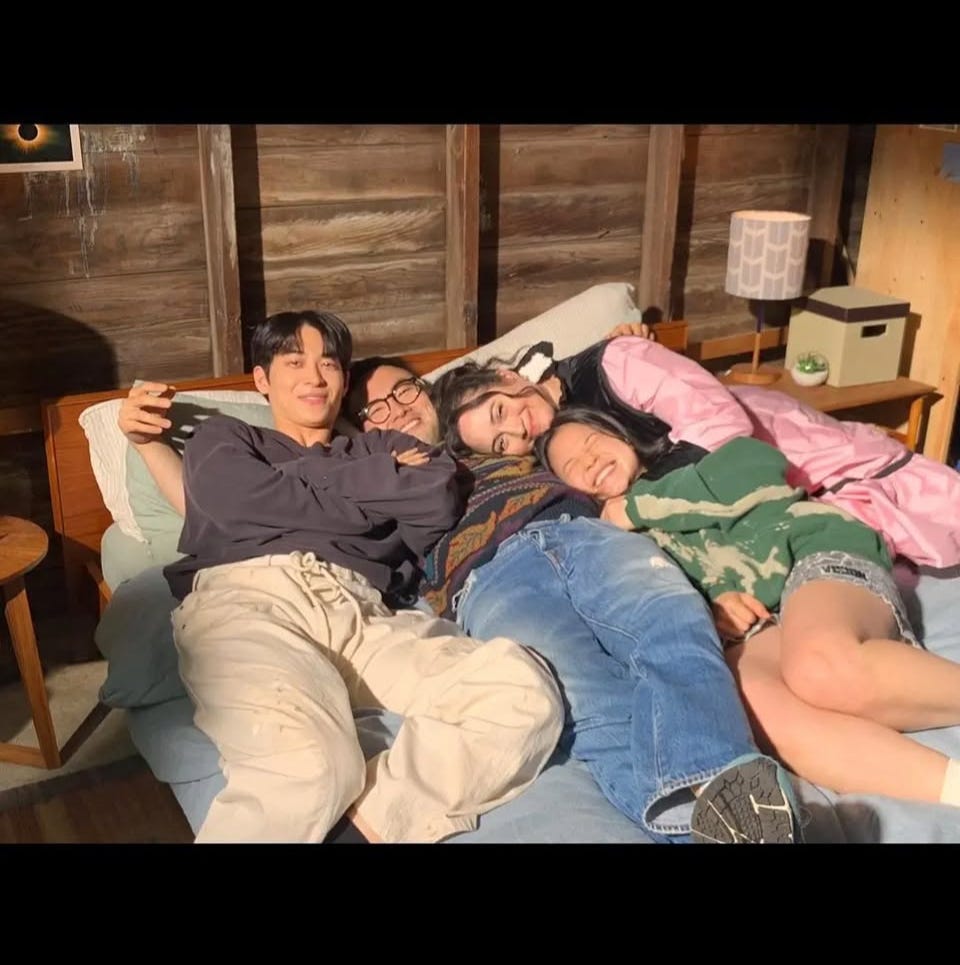


I love this interview!! Great questions.